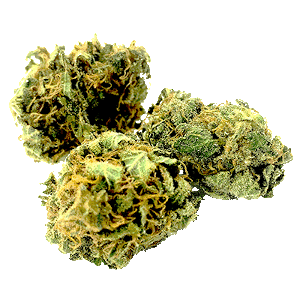

CBD vs. Pain: And the Winner Is…
Millions of people across the world are using CBD oil for pain. But just how effective is CBD at reducing pain. And can CBD oil actually treat the causes of pain? In this post, we’ll take a look at some of the various ways medical patients suffering from pain are using CBD oil and discuss its effectiveness.
Cannabidiol, more commonly known as CBD, is a non-intoxicating compound derived from the hemp plant. Hemp-derived CBD oil is known to have multiple healing benefits. The medicinal oils from cannabis have been used for millennia in the treatment of numerous medical conditions — most notably for pain relief — due to their powerful analgesic and anti-inflammatory properties.
Many prescription opioids use for pain can cause intoxication, severe lethargy, stomach upset, depression, and constipation, and if taken for lengthy periods, can result in kidney and liver damage. And corticosteroids, although they are highly effective for pain relief and reducing inflammation come with serious side effects.
CBD, however, works holistically in tandem with the body’s innate chemistry to reduce pain in some patients without producing any serious side effects.
What causes pain, and how CBD Helps Treat Chronic pain?
Pain is caused when a sudden injury is sustained or when chronic inflammation wreaks havoc internally. Furthermore, if a nerve is damaged because of an injury or ongoing medical issue, a painful condition known as neuropathy can manifest. This excruciating condition can also cause extreme numbness and tingling in addition to burning, shooting pain. Chronic pain can also be the result of a stroke or spinal injuries.
Some of the medical conditions that can cause relentless acute or chronic pain include:
- Injury
- Inflammation
- Damage to internal tissue
- Damage to joints (arthritis)
- Muscle spasms (cramps, etc.)
- Neuropathy (nerve damage)
The most common condition known to cause pain is inflammation. The term speaks for itself, as it refers to the inflaming of compromised or injured tissue. Inflammation is the body’s protective response to injury.
Inflammation causes increased heat, redness, and swelling around the injury site. This inflammatory response is the reason for many of our aches and pains. When an injury occurs, the body responds by increasing blood flow and sending white blood cells to the area in an attempt to prevent infections, viruses, and toxins from infiltrating the system.
The accumulation of these white blood cells ultimately results in swelling, redness, and stiffness. The swelling puts pressure on nerve endings, activating a pain response. If the inflammation becomes systemic it can cause headaches, chills, fatigue, fever, and a host of other issues.
There are two distinct types of inflammation. Acute inflammation is attributed to a sudden infection or injury and generally resolves itself when the wound or infection site is fully healed. Ongoing pain suggests chronic inflammation, which is often the result of autoimmune diseases or long-term exposure to environmental toxins or irritants. Chronic inflammation can also be triggered by allergic reactions to organic substances such as pollen, viruses, and certain food intolerances.
What do scientific studies say about CBD for pain?
Clinical and anecdotal evidence is rapidly accumulating supporting the efficacy and safety of CBD in treating acute and chronic pain. Over the past few decades, the healing herb has even gained favor within the federal government and now residents of all 50 states can buy CBD online and most states permit the production and retail sale of hemp-derived CBD products.
The U.S. government even filed a patent on cannabinoids back in 2003, noting in detail the numerous medical benefits of the active compounds produced in cannabis. An excerpt from the patent states the following:
“Cannabinoids have been found to have antioxidant properties… This new found property makes cannabinoids useful in the treatment and prophylaxis of a wide variety of oxidation associated diseases, such as ischemic, age-related, inflammatory, and autoimmune diseases. The cannabinoids are found to have particular application as neuroprotectants, for example in limiting neurological damage following ischemic insults, such as stroke and trauma, or in the treatment of neurodegenerative diseases, such as Alzheimer’s disease, Parkinson’s disease, and HIV dementia.”
In a collection of cannabis-research studies from a 2009 review titled “Cannabinoids as novel anti-inflammatory drugs,” the authors note:
“Overall, cannabinoids have exhibited the significant potential to be used as novel anti-inflammatory agents and specific targeting of CB2 receptors holds the promise of mediating immunosuppressive effects without exerting psychotropic side effects.”
Existing CBD research was also reviewed by a team of researchers in 2014. The team sought to specifically evaluate CBD’s efficacy in the treatment of addiction. In 2015 The researchers discovered 14 studies, five that were carried out on humans and nine conducted on animals. The final report titled, “Cannabidiol as an Intervention for Addictive Behaviors: A Systematic Review of the Evidence,” postulates:
“…a limited number of preclinical studies suggest that CBD may have therapeutic properties on opioid, cocaine, and psychostimulant addiction, and some preliminary data suggest that it may be beneficial in cannabis and tobacco addiction in humans.”
Another study titled, “Cannabidiol as an emergent therapeutic strategy for lessening the impact of inflammation on oxidative stress,” reported:
“CBD may have utility in treating several human diseases and disorders now known to involve activation of the immune system and associated oxidative stress, as a contributor to their etiology and progression. These include rheumatoid arthritis, types 1 and 2…”
A 2014 technical review titled, “Involvement of the endocannabinoid system in osteoarthritis pain,” reported that CBD indicated great efficacy in treating the pain associated with arthritis.
At Tokyo’s National Institute for Neuroscience, researchers reviewed all relevant scientific literature on CBD as a potential protocol for autoimmune diseases. Their final report was titled, “Cannabinoids and the immune system: potential for the treatment of inflammatory diseases.” The report published in the Journal of Neuroimmunology concluded:
“Cannabinoid therapy of RA could provide symptomatic relief of joint pain and swelling as well as suppressing joint destruction and disease progression.”
A number of studies have also been performed using lab animals. A study was undertaken in 2016 titled “Transdermal cannabidiol reduces inflammation and pain-related behaviors in a rat model of arthritis.” Researchers concluded:
“These data indicate that topical CBD application has therapeutic potential for relief of arthritis pain-related behaviors and inflammation without evident side-effects.”
A year later in 2017, another study that examined CBD’s pain-relieving abilities titled, “Attenuation of early phase inflammation by cannabidiol prevents pain and nerve damage in rat osteoarthritis,” also ascertained that CBD may be a viable treatment for joint pain.
There have been few clinical studies by pharmaceutical companies. One controlled trial undertaken in the UK in January 2006 assessed the potential for a cannabinoid-based drug called Sativex for the treatment of joint pain.
Investigators carried out the study at the British Royal National Hospital for Rheumatic Diseases. They reported that patients suffering from painful arthritic symptoms were successfully treated with cannabinoids. The report was titled, “Preliminary Assessment of the efficacy, tolerability, and safety of a cannabis medicine (Sativex) in the treatment of pain caused by rheumatoid arthritis.”
In the report, researchers claimed that over five weeks, with the application of cannabinoids, arthritis patients showed significant lessening of inflammation and pain with no serious side-effects.
The Journal of Pain Symptom Management also published a clinical research paper in 2010 titled, “Multicenter, double-blind, randomized, placebo-controlled, parallel-group study of the efficacy, safety, and tolerability of THC/CBD extract and THC extract in patients with intractable cancer-related pain.”
In this study, the efficacy of THC-only and THC/CBD extracts were compared. Twice as many patients receiving CBD/THC applications reported a 30 percent reduction in pain. Interestingly, the patients who received only THC reported almost no improvement in their level of pain reduction much like their placebo counterparts.
How is CBD used to reduce pain?
CBD is most commonly sold in herbal remedies, not as a single drug. Unlike FDA approved drugs, CBD comes in a vast variety of formulations and delivery methods. Different strains of high-CBD hemp produce unique ratios of cannabinoids and other active compounds known as terpenes. As a result, each strain produces a unique set of effects.
Furthermore, the effects of different delivery methods will vary as well. For example, smoking dried CBD-rich hemp flower and vaping CBD oil offer a fast onset time and thus are great for systemic inflammation and neuropathic pain. However, smoking and vaping are not recommended for patients with heart and lung issues.
Alternatively, CBD-infused edibles take more time to reach full effect but are longer lasting. Edibles are ideal for conditions of the stomach and intestines as well as for sleep disorders.
CBD topicals — CBD creams, ointments, balms, salves, etc. — are excellent for treating localized muscle and joint pain. CBD creams are also available for painful skin conditions. Many CBD aficionados use topicals exclusively.
There are many other CBD product options aside from those mentioned here. Because of this variability of CBD products and their effects, it’s wise to do some homework to see which hemp strains, formulations, and delivery methods are ideal for an individual’s particular medical condition and lifestyle.
Sources and additional reading:
- Cannabinoids in the management of difficult to treat pain
- Study shows more Americans using CBD for back pain, sleep and stress
- Cannabinoids as novel anti-inflammatory drugs
- Cannabinoids and the immune system: potential for the treatment of inflammatory diseases?
- Involvement of the endocannabinoid system in osteoarthritis pain
- CBD Skin Cream Mitigates Chronic Back Pain Says New Study
- Cannabinoids, inflammation, and fibrosis
- Cannabinoids in clinical practice
- Preliminary assessment of the efficacy, tolerability and safety of a cannabis-based medicine (Sativex) in the treatment of pain caused by rheumatoid arthritis















